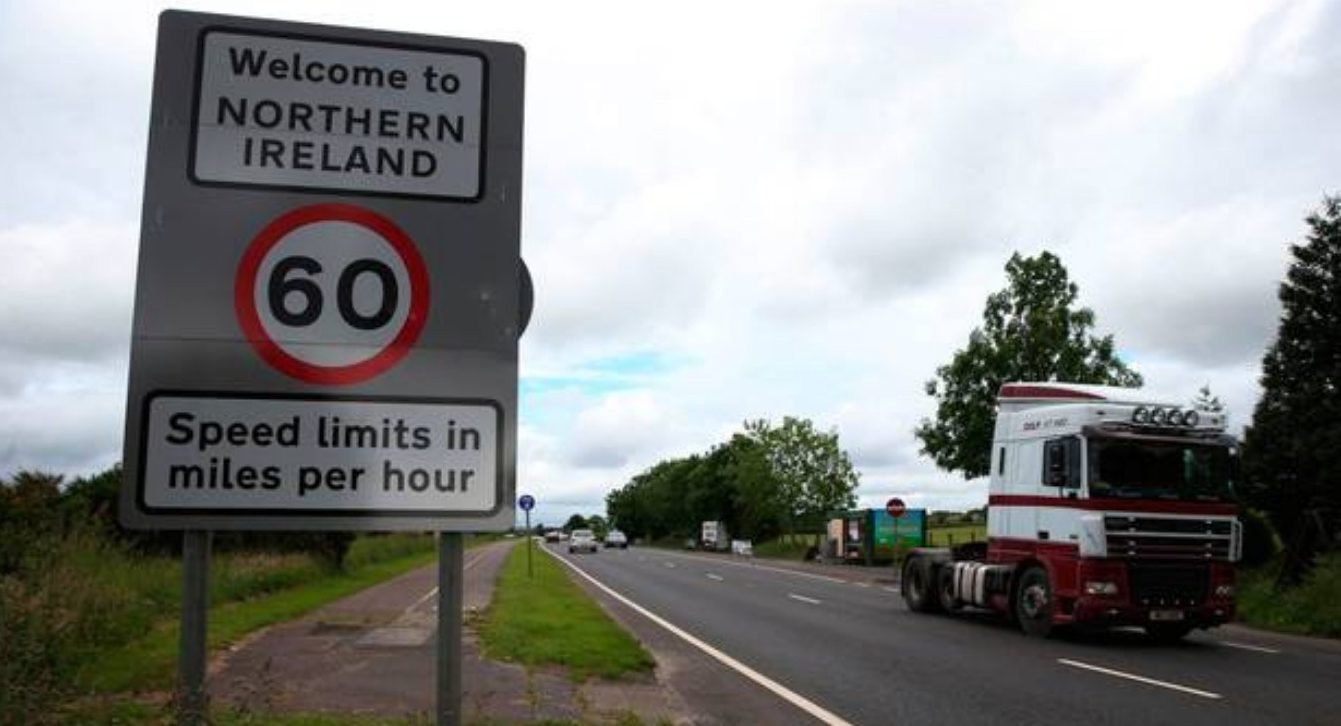‘Alternative Arrangements’ to the Backstop Won’t Work, and the Government Is Beginning to Realise It
by Patrick Geddis
17 September 2019

“…the people [are] British but the Cattle [are] Irish,” said Boris Johnson at the start of this month. Johnson was quoting Ian Paisley Sr., the former Northern Ireland first minister and DUP leader, suggesting the idea might present a “germ” of a solution to the current impasse surrounding the Northern Irish backstop.
That the border between the EU and Northern Ireland has come to dominate the Brexit debate has been quite surprising, particularly given the relative disinterest the British political class has had for Northern Ireland since the St Andrews Agreement.
In large part, the backstop is so important for Northern Ireland because of the importance of cross-border trade to the NI economy. A report commissioned by the Northern Ireland Department for the Economy and published in June warned that the some £3.9bn of exports south of the border would be under threat in the event of a no-deal Brexit. Trade with the Republic of Ireland represents 33% of Northern Ireland’s goods exports (sales outside the UK).
Almost all of the businesses exporting from Northern Ireland to the Republic (94% of them) are small or micro-sized businesses, which employ 10-49 people and fewer than 10 people respectively. The Department for the Economy report warns that these firms will have no real means of trading with the south, as firms of this size lack the “administrative or organisational capacity” to deal with new customs checks.
This would be particularly disastrous for the agri-foods sector, which makes up roughly a third of exports from north to south. Firms exporting goods of animal origin to the south would, in the event of a no-deal Brexit require export health certificates to accompany their goods. However, Northern Ireland lacks the human capital needed to provide enough certificates to cope with such an increase in demand. Paul Hardwick, a trade specialist from the British Meat Producers Association, has warned that Northern Ireland will not have enough vets to sign all the paperwork needed to maintain these exports.
The obvious solution to this is either a UK-wide or Northern Ireland-specific backstop. This would allow Northern Ireland to keep the same regulatory framework as the EU and therefore the Republic of Ireland.
Political opposition has most notably come from Northern Ireland’s Democratic Unionist party, who have described an NI-only backstop as their only “blood red line” on Brexit, fearing an NI-only backstop would keep Northern Ireland in a different regulatory framework than the rest of the UK. The concern appears to be shared by Boris Johnson, who last week confirmed he has ruled out an NI-only backstop.
This leaves the prime minister with the option of a UK-wide backstop, which pro-Brexit groups such as European Research Group have denounced as “Brexit in name only”, arguing it would not give the UK full control over its laws. It’s no wonder then that the prime minister has sought to find “alternative arrangements” to the backstop.
The problem is there aren’t any.
Documents leaked to Politico last month show that the proposals under consideration to mitigate the need for customs checks are largely infeasible or inadequate for preventing the need for border checks.
According to the leaked documents, these customs checks would be administered by ‘mobile units’ which the documents show would not be fit for purpose, particularly given that food shipments tend to be chilled or frozen requiring checks to be administered in a fixed facility.
The UK government is supposed to ensure there is no fixed border in Northern Ireland due to its obligations under the Good Friday Agreement. But the impracticability of mobile units means a border would be the only way to enforce a regulatory divergence between Northern Ireland and the Republic.
The PM’s position is therefore untenable. He can’t agree to an NI-only backstop for fear of alienating the DUP or a UK-wide backstop for fear of enraging the ERG. Moreover, he can’t bring Northern Ireland out of the EU’s regulatory framework without risking the NI economy and being left trying to enforce unenforceable customs relations across the Irish border.
Meanwhile, the prospect of the DUP’s position wrecking the Northern Irish economy may have contributed to the much discussed ‘Alliance surge’, which has led to the neither-unionist-nor-nationalist party Alliance significantly increasing its popular support.
The rise in support for Alliance means the DUP now risks losing seats in any upcoming election. A poll from Lucid Talk has shown that the DUP’s seats in South Belfast, East Belfast and South Antrim are all currently under threat, while the DUP’s Westminster leader Nigel Dodd may be at risk from a Sinn Féin challenge in Belfast North.
This may explain why the less hardline wing of the DUP has now begun to soften its position on the backstop. Jeffery Donaldson, the DUP’s chief whip in Westminster, has signalled he may be willing to support an all-island approach to goods of animal origin, and it has been speculated that the PM may follow the same path.
This means that influential groups on the Brexiteer side of the current crisis are beginning to accept the need for some sort of NI-EU regulatory alignment. So far this speculated alignment would only cover agri-foods, which Irish Taoiseach Leo Varadkar has argued only covers around 30% of border checks. But the fact those on and around government benches in Westminster are beginning to agree on the need for some sort of border in the Irish Sea makes it look like they are gradually accepting the idea that a backstop may be inevitable.
Patrick Geddis is a finalist at Queen’s University Belfast and works for a policy monitoring and public affairs firm.